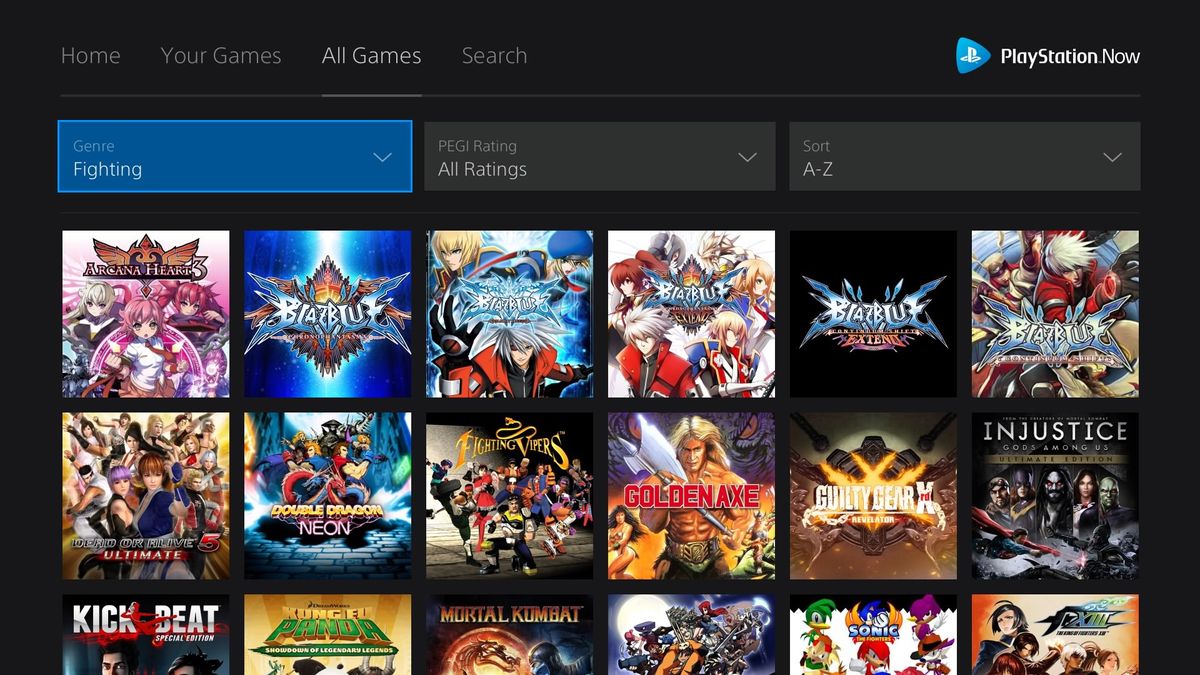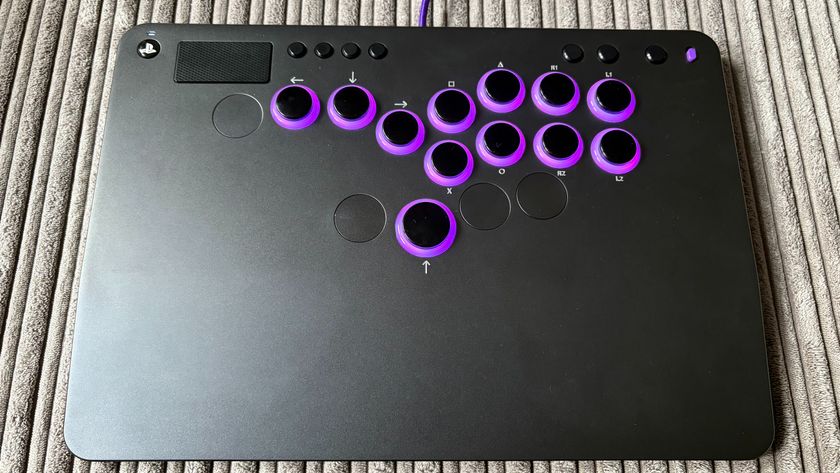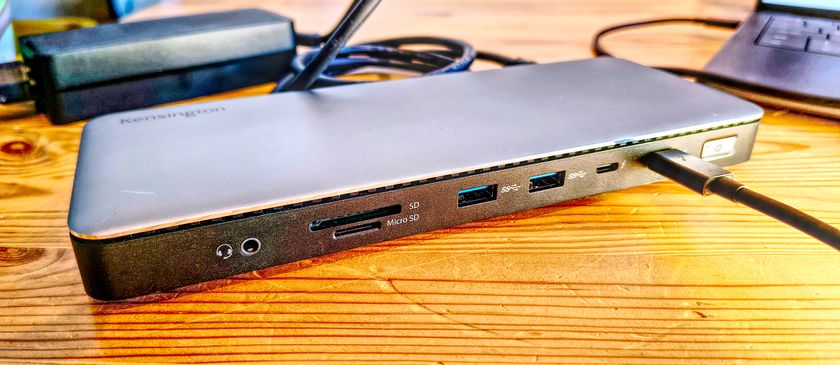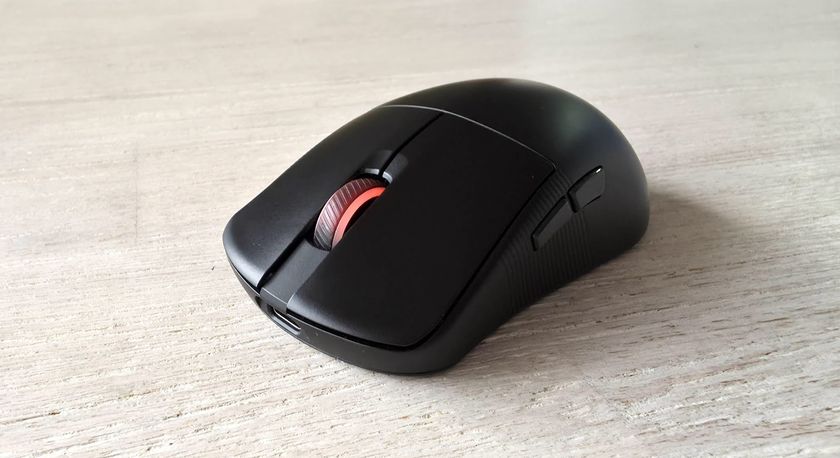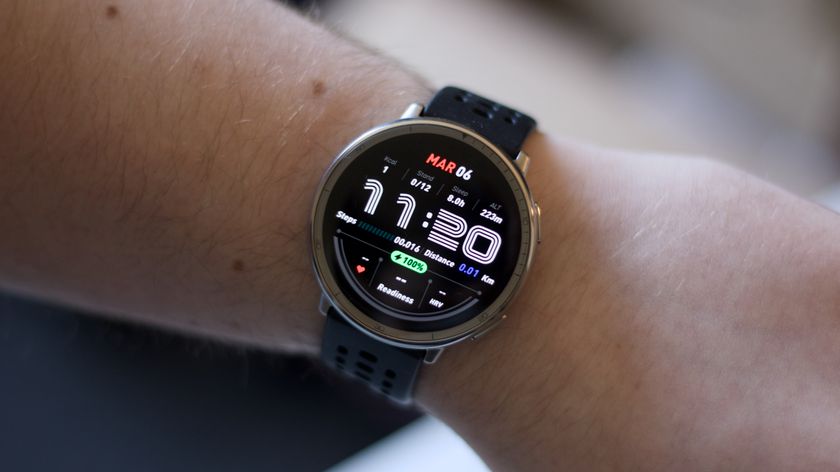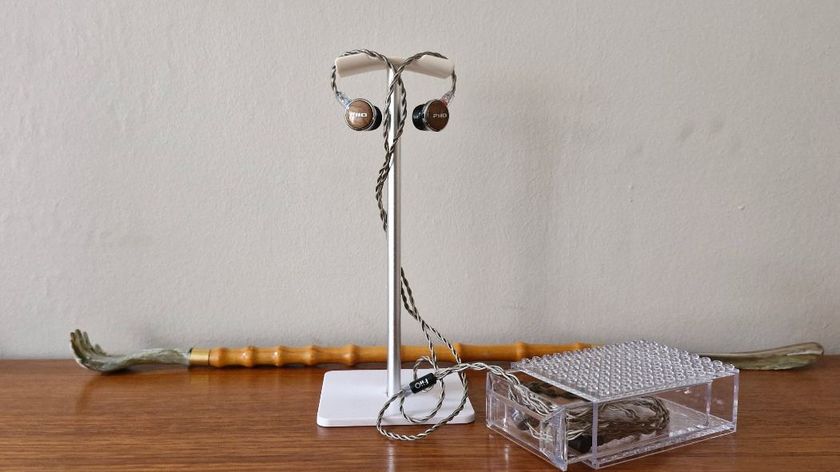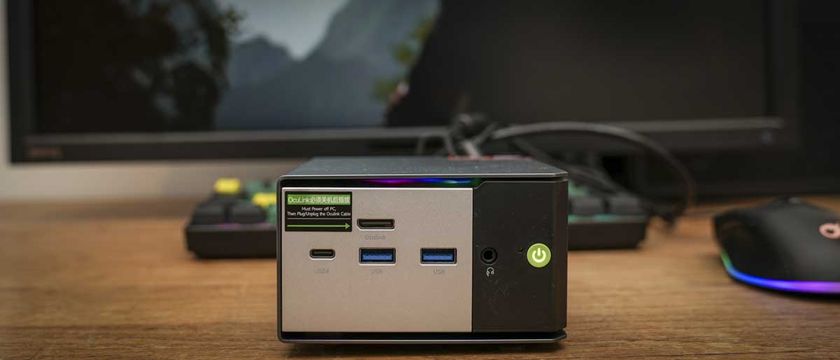TechRadar Verdict
PlayStation Now offered gamers the chance to stream or download games through a monthly subscription service: an innovative way to save time or precious hard drive space. While it wasn't be a necessary service for everyone – and PS3 downloads are yet to materialize, if ever – PS Now came a long way from the service we initially saw.
Pros
- +
Wide selection
- +
Subscription is reasonably priced
- +
Backwards compatibility for PS3/PS2
Cons
- -
Missing many must-play games
- -
No PS3 downloads
- -
Connection drop = game over
Why you can trust TechRadar
PlayStation Now (often referred to as PS Now) came a long way from its rather sketchy beginnings. While the debate as to whether it trumps Microsoft's Xbox Game Pass is one thing, it's a far more temping proposition than it ever was before.
Back in 2012, Sony bought the then-barely-known cloud gaming service, GaiKai, for a cool $380 million (£242 million, AU$518). The decision was met with tepid excitement and heaps of skepticism, most of which was understandable.
The big question was this: could cloud gaming really work, particularly when so many companies had tried and failed before? The pricing was also a concern: how much would PS Now have to cost so that both consumers and developers get a fair deal?
In the years since, PlayStation Now grew in range and in quality. Broadband speeds have improved considerably, and continue to rise, which means that no one doubted how PlayStation Now was now a more realistic option for many.
Thanks to a download feature, users could finally play PS4 and PS2 titles natively, instead of over the cloud. The service also butted heads with Xbox Game Pass, which offers game download 'rentals' rather than trying to live-stream games over the cloud. However, Xbox Game Pass Ultimate now includes Xbox Cloud Gaming, which lets you stream a library of titles from any mobile device, PC, and Xbox consoles.
PlayStation Now
What is PlayStation Now?
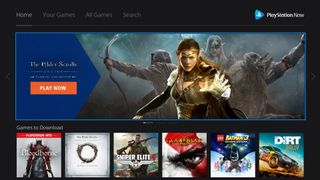
PlayStation Now was a digital game-streaming service from Sony, which has now been replaced by a revamped PS Plus. Simply put, you'd pay Sony a monthly subscription fee, which means you can access a Netflix-style library of over 800 titles. You could pick-and-choose what you play, and could either download a title for a more native experience or stream select games over the internet.
You used to be able to 'rent' games individually for one-off payments in a similar way, but it's now the subscription or nothing.
For a long time, PlayStation Now was exclusive to the PS4 console, but it later got extended to work on Windows PCs and PS5 as well. The selection of games is getting better and better all the time, too. Most are from the PS3 era, but PS2 games are also included – even if PS Vita games no longer are.
PS Now: design and interface
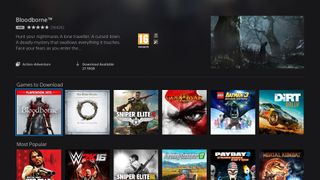
Once you pick a game, the service would connect you to a remote server that will host your session. A few moments later and the game would be up and running.
From there, it was up to you to navigate the respective title's own menu, settings, controls, and the like. The service didn't magically remaster old titles, though, so especially for older games like Ico or Rogue Galaxy, the visual quality largely depended on how well your television upscales low-resolution content.
If you set up a streaming session, that meant there was no need to download the game – though you can now do just that for the PS4 and PS2 libraries on the service. If you'd rather temporarily save a game to your hard drive and plough through it offline than rely on the strength of your broadband connection, the option was there.
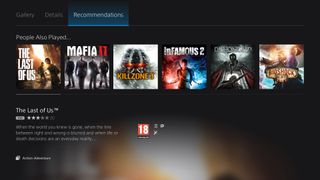
PlayStation Now's interface was incredibly simplistic, maybe overly so. After you get past the paywall titles are separated into categories with featured titles, usually grouped by genre, at the top.
Scrolling down, you'll find more discrete categories, like 2D fighting games or JRPGs, for example. There are about a dozen categories to pick from, with some titles appearing in multiple categories.
After you pick a game from the list and play it for the first time, the game would appear on the home screen so that you could easily pick it up again in the future.
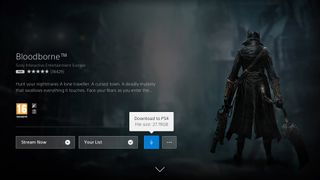
There was a time that we hoped, perhaps somewhat naively, that PlayStation Now would be the Netflix of video game streaming. The hope was that we could shell out our cash and access any game on the service forever – so long as we didn't let our subscription lapse.
PlayStation Now hasn't quite unfolded that way. That's not to say that the service was bad, mind you. It was just... different. All a streaming video service has to do is push content from a server to your console. It needs to know when you pause, obviously, but other than a few small commands, the service doesn't really take any input.
That need to always be listening for commands and interpreting them in real time is what makes a service like PlayStation Now a nightmare to code. For you, this point can mean the difference between lag-free gameplay and an unplayable experience.
PS Now: game library
Marvel's Avengers
Borderlands 3
Infamous: Second Son
Detroit: Become Human
Bloodborne
World War Z
Until Dawn
At last count, PlayStation Now had more than 800 games available to stream, and many of them – PS4 and PS2 titles – are available to download. They range in value and prestige from some of the must-play games of the last generation, like The Last of Us, to small indie darlings, to some completely forgettable, bargain bin fodder.
But the decent titles are worth the price of entry, though it's worth bearing in mind they tend to change every few months. Games like Saints Row 3, Enslaved: Odyssey to the West, Darksiders and Catherine are all up for grabs, while Sony provides a few platform exclusives, like Ico, Shadow of the Colossus and Ratchet and Clank, that are excellent as well. Not to mention the Batman Arkham trilogy, Until Dawn, Borderlands, Bioshock: Infinite, and Ultra Street Fighter IV.
In addition, PlayStation Now offered PC players the chance to play Bloodborne for the first time – as the title has always been a PlayStation exclusive. Of course, you won't be able to download it to your PC, but can stream it via the cloud.
Sadly, not every game is worthwhile: some of the hundreds of games are clearance pile fodder, and have been for the past few years. I don't know anyone lining up to play Heavy Fire: Shattered Spear or Jimmie Johnson's Anything with Wheels, and while I'm sure someone really enjoys Wheel of Fortune and Frogger HD, it's not me. But the variety offered here should be enough to please a diverse set of tastes.
That offering has certainly improved over time: just like Sony's PlayStation Plus subscription, which offers a handful of free games for download each month, PS Now treads the line between desirable games and those that are just about going out of fashion.
Unlike Xbox Game Pass, it doesn't offer the latest AAA games, but it does offer a convenient way to access a library of old titles that are either hard to get hold of, or just a way to test titles without a market-price barrier.
PS Now: pricing

PlayStation Now could offer the biggest and best games from the company's 20-year foray into game consoles, but if the pricing isn't right, none of it will matter. Knowing full well that prices and dollar signs are what sinks ships, pricing is one area that Sony has given special attention to over the last year of PlayStation Now's existence.
In October 2019, Sony slashed the pricing from $19.99/£12.99 per month to $9.99/£8.99 per month. For US gamers, that's a half-price difference, while UK players would have still been saving a neat £48 over the course of the year. You also had the option to pay quarterly at $24.99/£22.99, down from $44.99, or annually for $59.99/£49.99 down from $99.99/£84.99.
What's most notable about this, though, isn't just the saving, but how it drags down the price to match Microsoft's competing Xbox Games Pass service, which costs $9.99/£7.99 per month. In the beginning, there was the option to rent games as needed from the PlayStation Now store, rather than pay a monthly subscription fee. That option was later ditched, so it's the subscription fee or nothing.
In the images below you can see how it used to work. A table of three games: one PS3 game, one PSN game, and one more recent PS4 game that display not only the difference in price over each time period, but the difference between games from different platforms as well.
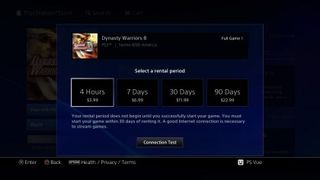
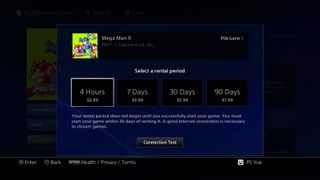
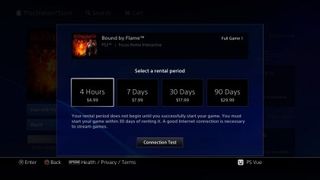
Where we saw PlayStation Now finding some traction is with gamers supplementing their PS4 experience with what essentially amount to rentals – or, crazier users giving up their physical media collection completely.
This depends largely on how quickly publishers get on board with game-streaming as a way to play. But, in a perfect world in which games launch simultaneously on retail and PS Now, you could be playing the week's biggest games without leaving your couch for your subscription fee. This hasn't transpired yet, however.
It's a shame we didn't seen a joint membership option for both PS Plus and PS Now before the PS Plus revap, given the accumulated monthly fees are likely to prevent high uptake. If the choice is between a cost-effective way to play online on the one hand – and receive a couple of free old games each month, too – and a streaming service with numerous connection issues that's twice the price on the other, which one would you choose?
PS Now: stream quality
Another area that could have used some sprucing up at the time is the streaming quality, although it slowly improved. Not only did games take 30 to 45 seconds to load up, but any hiccup in the connection completely derails gameplay.
While Sony recommended connection speeds of 5Mbps, it's not until 10 to 15Mbps that you'd truly reach the promised land of uninterrupted gameplay. And for more demanding AAA games like Bloodborne or Batman: Arkham City, you'd want all the connection speed you could get to make the most out of your play session.

If you leave this review with one piece advice, it should be this: use an Ethernet cable instead of the system's Wi-Fi. A lost connection to your router will boot you from the game whether you've saved 10 seconds ago or 10 minutes ago. (We got booted from games multiple times due to a bad connection.)
When we first tested the service, we found pretty much everything except low-intensity platforming games like Braid would cause at least infrequent jitters. The busier the screen, the harder it will be, but the work Sony has put into the service over the last year meant any issues streaming Bloodborne – 27.19GB to download, for context – were really quite negligible.
But no matter how good you think your internet speed is, we still recommend you take advantage of the seven-day free trial before committing yourself long term to the streaming platform.
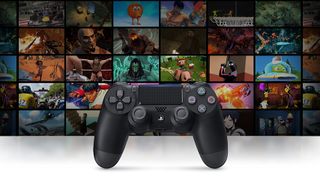
PS Now: what we liked
As promised, Sony delivers a slew of games. Picking which one of the 800-plus games to download first is a difficult decision, and the library continues to grow. it effectively functions as an emulator for old games too, nicely circumventing the console's lack of backwards compatibility.
But don't treat this like the end-all, be-all choice – because streaming doesn't take up any space on your hard drive and there's zero download time, you can jump from one game to the next to your heart's content.
Ideally, that means taking advantage of the reasonably priced subscription program, even if it's only for the seven-day trial period. It's not that we're opposed to shelling out for content a la carte, but you need to use caution and good judgement before you rent games that you could've bought outright for less.
PS Now: what we disliked
It would've been great to escape the slog of buying games and returning them for half their value, but that doesn't seem possible with PlayStation Now in its current state. Publishers haven't taken to the idea of putting their latest wares on the service, instead opting to put up classics of varying quality.
The other major problem is that, depending on the strength of your connection, every once in awhile, lag can derail your perfect stream in a first-person shooter or send you careening into a wall in a driving game. Worst of all, if you get booted from your game, you can say goodbye to all the progress you made since your last save.
PS Now: verdict
As a platform, it's now defunct but PlayStation Now had vastly improved since launch. There were just 80 games on it in the beginning, after all, and nothing like the download option players will find for PS4 and PS2 games now. The complete switch to a subscription option makes joining a simpler decision too.
At the time, we believed whether you should subscribe to PlayStation Now came down to two questions: do you mind games that are a few years old and, more importantly, can you put up with small periods of imprecise controls in exchange for a massive, 800-plus game library?
If your answer was no to either of those, then we said you might want to press pause on your subscription until more third-party game makers get on-board or Sony at least fronts more recent first-party games on the subscription side of the service. If PS Now doesn't have the games you want to play, why would you bother?
PlayStation Now didn't have the pulling power or steady drip-feed of must-play games to make it as attractive a proposition as the Netflix service it has eyes on emulating. Given the expanded library of titles and new download options for PS4 and PS2 titles, we recommended it for those confident in their internet speeds – at least for as long as it takes to work through the titles you actually want.
PS Now: recent updates
Unfortunately, as mentioned above, PlayStation Now is no longer an active subscription being offered. Following rumors that Sony was planning a competitor to Microsoft's Xbox Game Pass, the company unveiled a revamped PS Plus subscription service last April, which gradually began rolling out worldwide in June.
What Sony has done is essentially merge PS Now into PS Plus, and the new subscription feature three tiers called PlayStation Plus Essential, PlayStation Plus Extra, and PlayStation Plus Premium. If you had the old PS Plus subscription, that'll equate to the Essential tier, and pricing will remain the same.
However, Extra offers an additional catalog of games, while Premium expands this and includes streaming for original PlayStation, PS2, PS3, and PS4 games. For territories with cloud streaming, PlayStation Plus Deluxe is available instead for a lower cost.
Nick Pino is Managing Editor, TV and AV for TechRadar's sister site, Tom's Guide. Previously, he was the Senior Editor of Home Entertainment at TechRadar, covering TVs, headphones, speakers, video games, VR and streaming devices. He's also written for GamesRadar+, Official Xbox Magazine, PC Gamer and other outlets over the last decade, and he has a degree in computer science he's not using if anyone wants it.
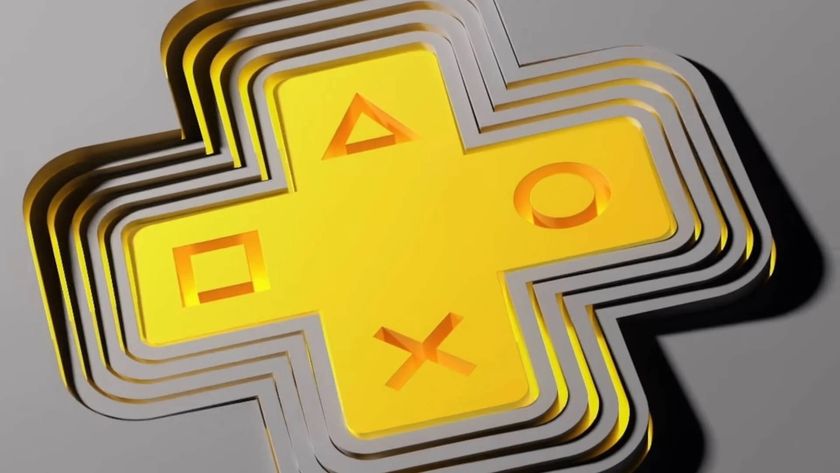
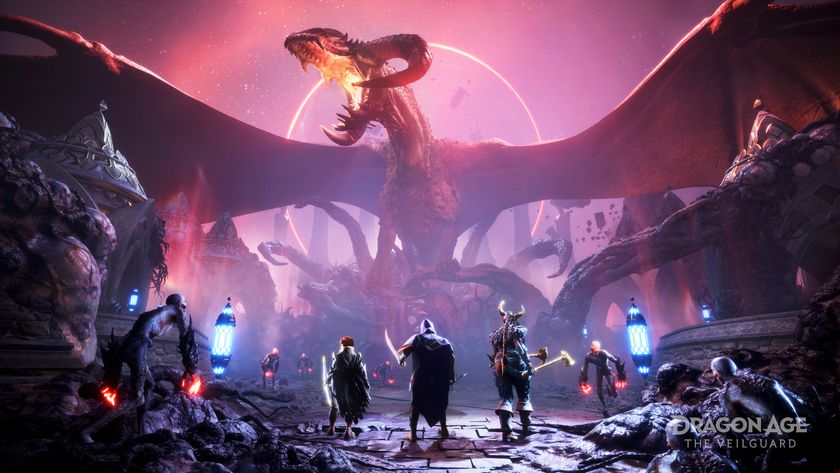
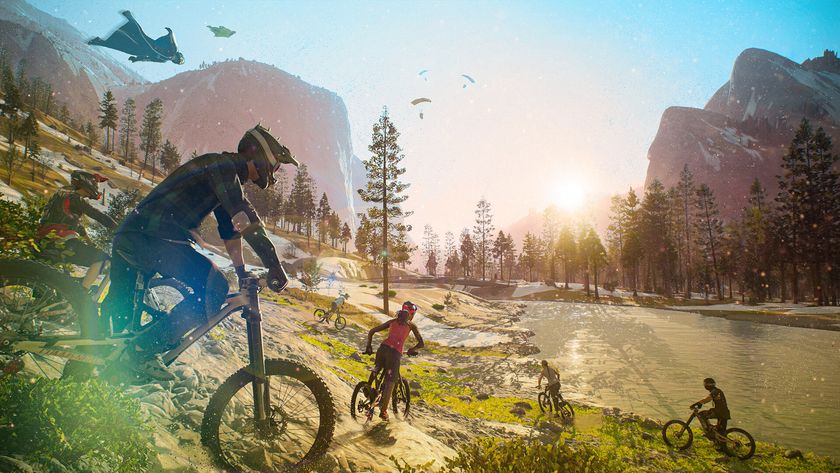
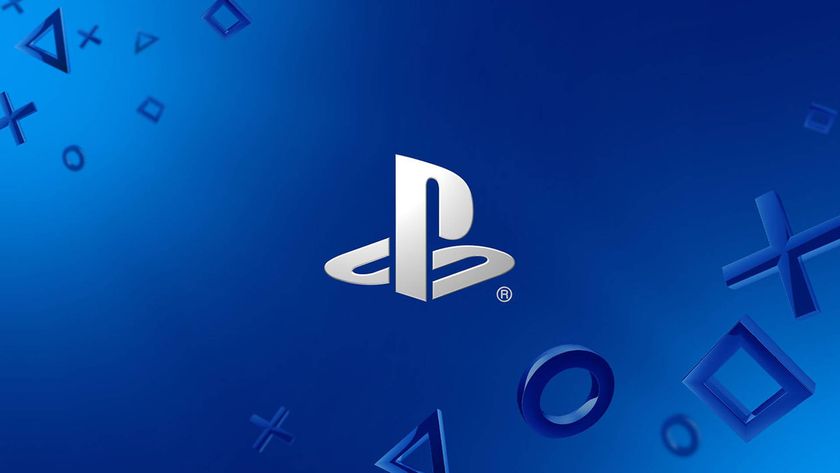


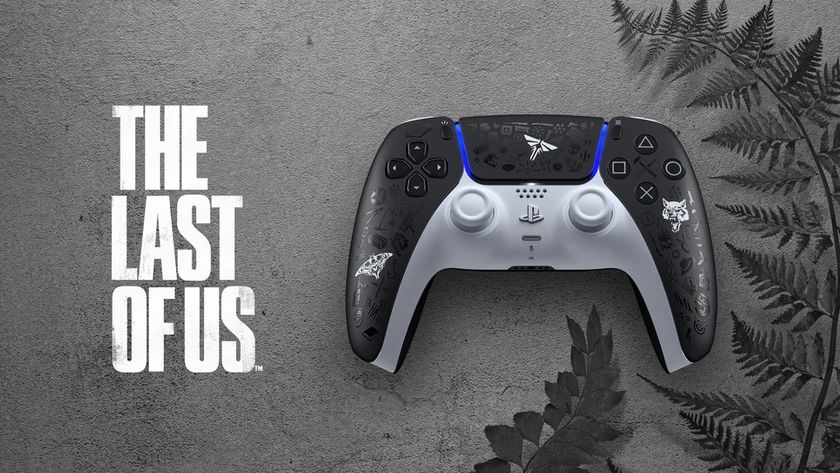
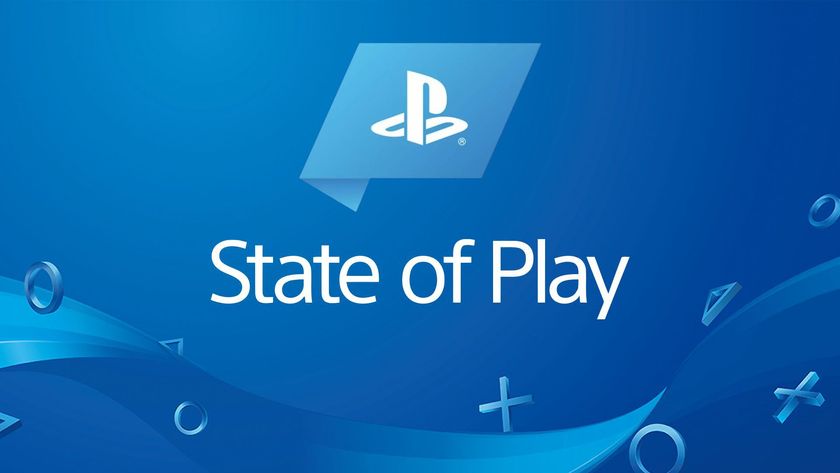

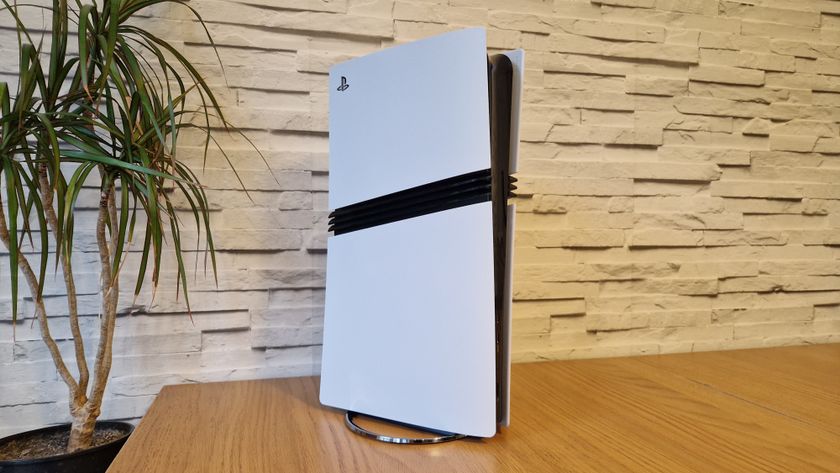
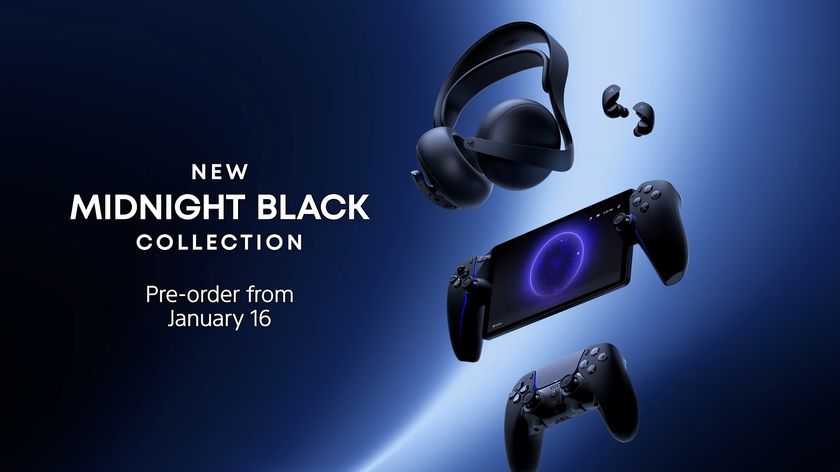


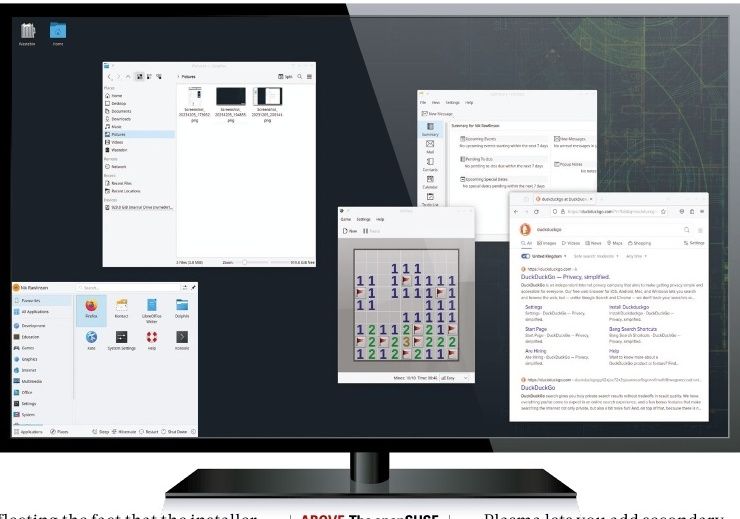
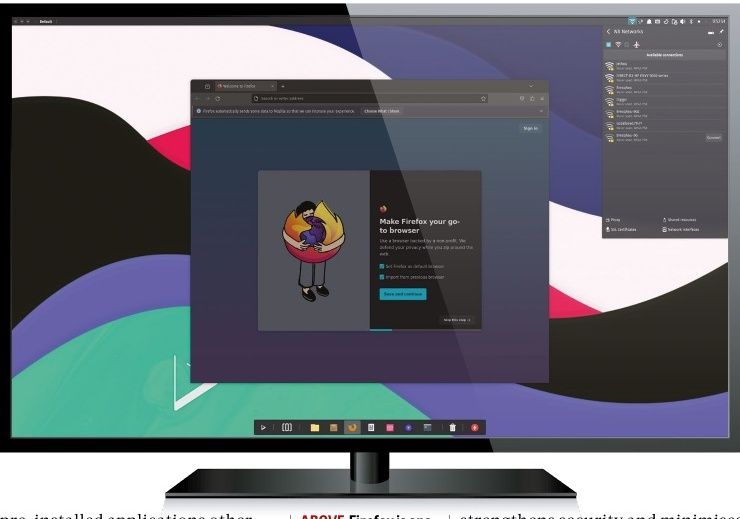
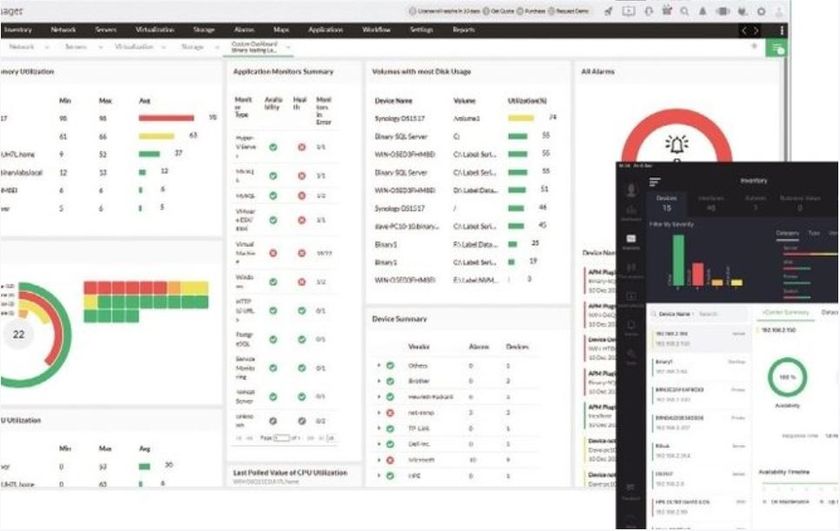
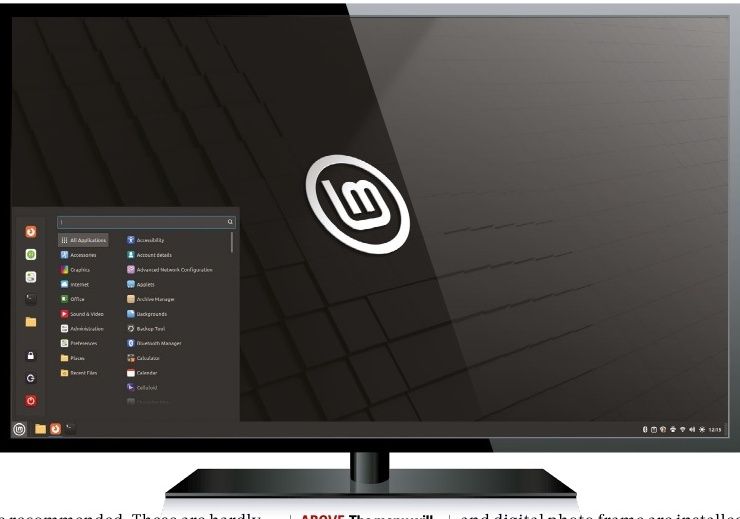

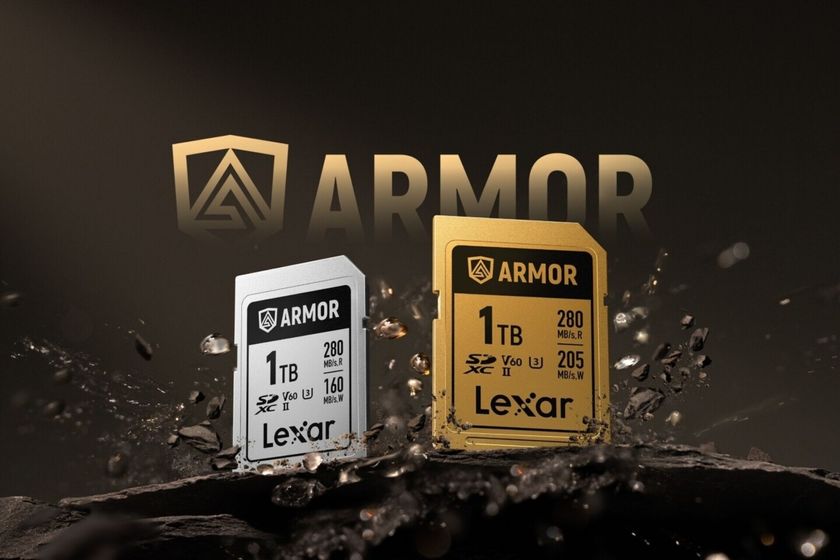
Almost indestructible memory card launched; Lexar's Armor SD steel cards are water resistant and can survive a 16-feet drop
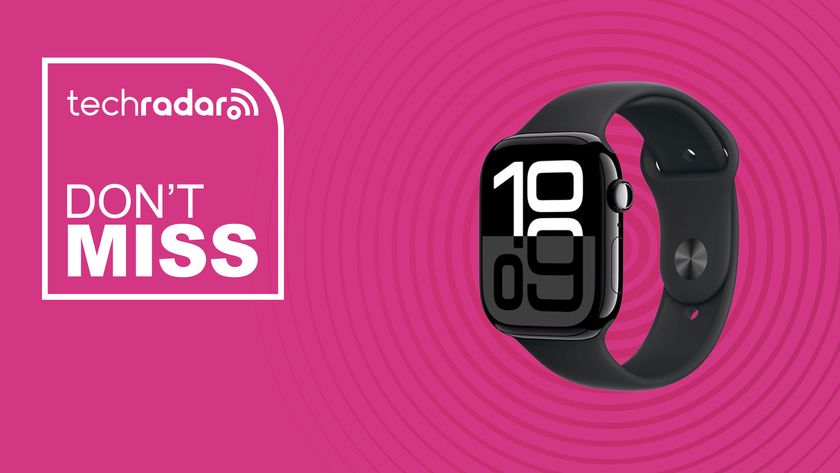
The beautiful Apple Watch Series 10 drops to its lowest-ever price at Amazon
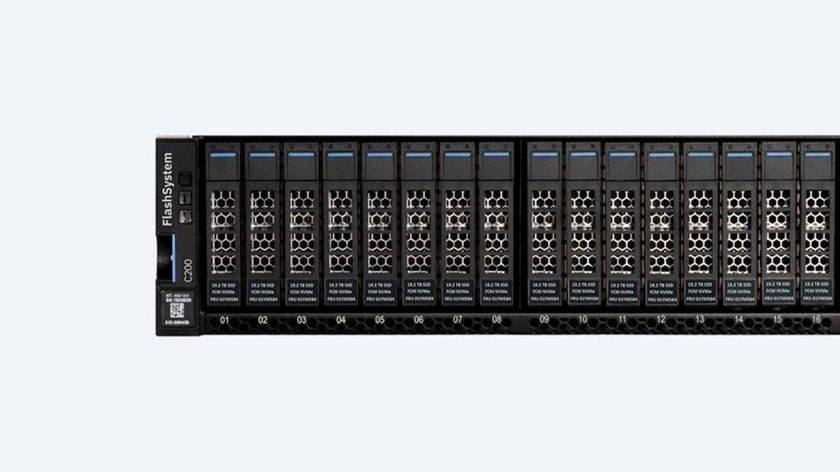
'Writing is on the wall for spinning rust': IBM joins Pure Storage in claiming disk drives will go the way of the dodo in enterprises
